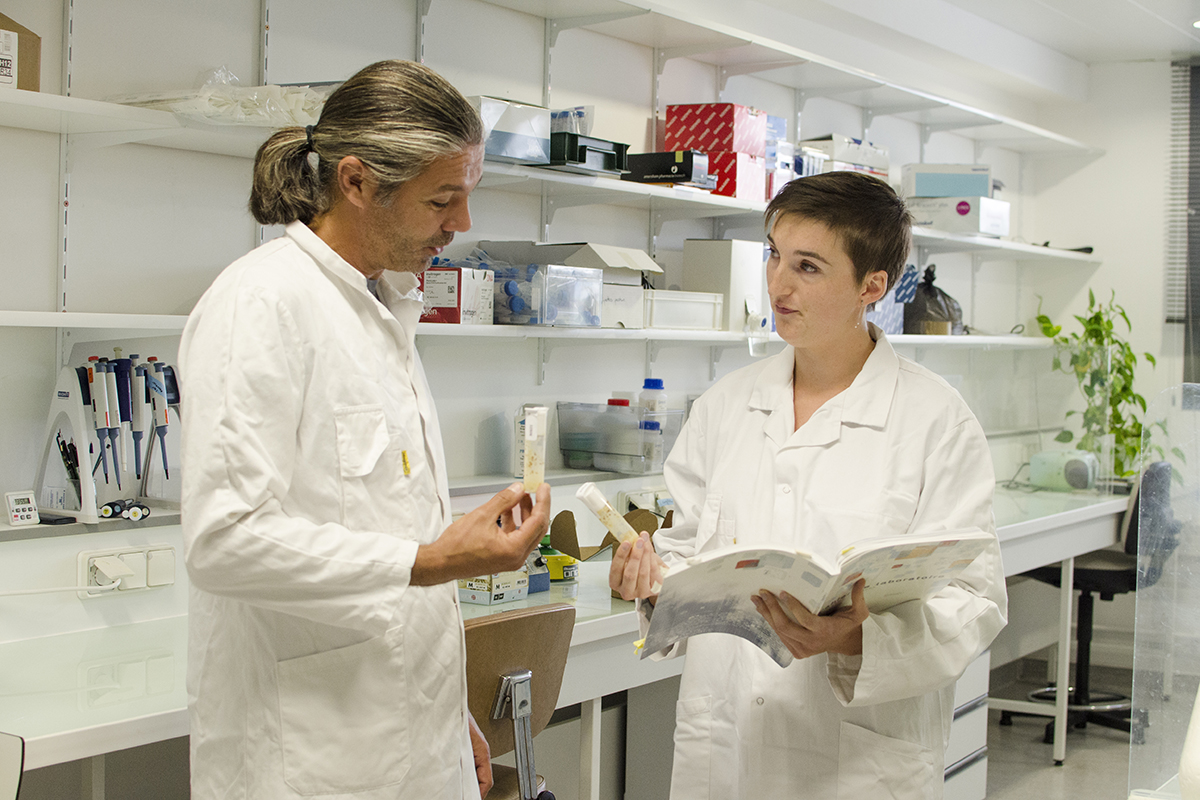A university "that supports research careers".
The University of Montpellier has been awarded a 3-year renewal of its European label HR Excellence in Research label. This decision reinforces the Human Resources for Research (HRS4R) strategy deployed by the UM since 2015. Providing better career support for researchers, promoting their working conditions and mobility within Europe, while enhancing the attractiveness of the University: these are the ingredients of a winning strategy.
" In 2015, we were the first French university to obtain this "HR Excellence in Research" label; in 2021, we are the first to renew it! This leadership position was recognized by the international jury, as 50 French institutions now display this logo among more than 600 international institutions ," says Nathalie Modjeska, HRS4R Project Manager and Head of International Programs at MUSE. This is a justifiable source of pride, as the University of Montpellier has been stamped with the label for a further 3 years as an institution " that supports the research profession ", as the project manager points out.
A label for researchers
Created in 2008 by the European Commission, the "HR excellence in research" label is awarded to establishments that apply the European Charter for Researchers and the Code of Conduct for the Recruitment of Researchers (C&C), two documents produced by the European Commission to harmonize the practice of research professions in the European area. " This label rewards the University's commitment to improving the working conditions of those involved in research, promoting the mobility of researchers within the European area and providing better support for their careers," explains Nathalie Modjeska.
"It helps to secure European funding, and can also help to obtain it, since for equal marks, priority will be given to responding to a European call for projects submitted by an accredited institution", she continues. Last but not least, the University of Montpellier benefits from the advantages of the Euraxess label, namely greater visibility and automatic, free publication of job offers on the Nature and Science magazine portals.
Operational and strategic groups
Mobility, financing, visibility, attractiveness... All of which motivated the teams to tackle the second part of the evaluation: an on-site audit scheduled for last June. Health conditions prevented the face-to-face meeting from taking place, but the audit did take place, and the three international experts met the HRS4R project players by videoconference. First of all, the delegation from the strategic group, made up of vice-presidents Jacques Mercier and François Pierrot, vice-president Agnès Fichard-Carroll and former general services manager Romain Jacquet.
Then there was the operational group, made up of five of the thirteen departments involved in the project: DRI, DRH, DIPA, DRED and the MUSE Foundation. Then there were the researchers' representatives, of whom there were 4, "each of whom represented a different category of researcher as Europe understands it: a doctoral student for category R1, a post-doctoraldoctoral student for category R2, a senior lecturer for category R3 and a professor for category R4. Europe is extremely attentive to the working conditions of researchers, right from the doctoral level ", explains Nathalie Modjeska, who was the last member of the project team to be audited, along with her project assistant Paloma Hughes.
"Excellent feedback
It was a day of presentations, questions and answers, and discussions which ultimately led to an excellent assessment by the jury. " We received excellent feedback, in particular on the University's good practices in managing the HRS4R project, as much for the interactive workshop set up to collectively define the new actions of the HRS4R 2020-2023 plan, as for the broadening of the representation of researchers within the strategic group, whose number increased from 4 to 12 ," emphasizes the project manager. With the renewal of the label for 3 years, the University's HRS4R policy will be reassessed in June 2024, but on the basis of a dossier only. As on-site audits only take place every other year, the next one is scheduled for 2027. The team, however, is already hard at work making the 23 actions of its plan a reality for all UM staff, and for researchers in particular.
A 23-point action plan
- The updated version for the 2020-2023 period sets out 23 actions, many of which are already underway or completed;
- Attractiveness policy for young researchers, post-docs and established researchers (action 16);
- Enhancing the value of teaching by creating a teaching award based on the model of the innovation award (action 17);
- Raising agents' awareness of the need to develop a personalized career plan (action 19).
New features include :
- The creation of a think-tank for young researchers and the launch of joint workshops to promote exchange and understanding between researchers and administrative and technical staff (action 5);
- Pursue dematerialization and administrative simplification (action 6) ;
- The creation of a committee to harmonize procedures and forge closer links with research organizations (action 7);
- Dissemination and application of OTM-R principles through training courses and follow-up in the annual social report (action 9);
- The pursuit of greater gender balance through the equality plan (action 12);
- Improved communication on career progression and tenure timetables and procedures (action 18);
- A range of training courses to develop managerial skills for all managers of structures, departments and services (action 23).
